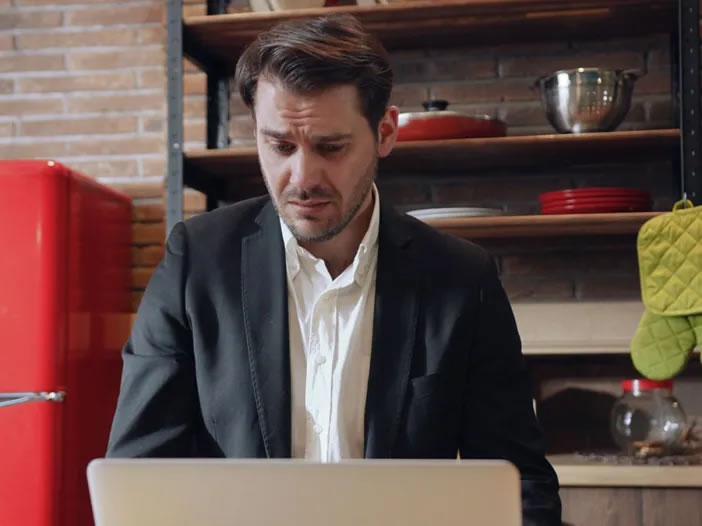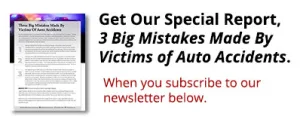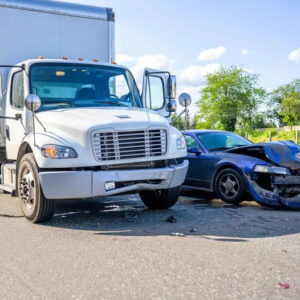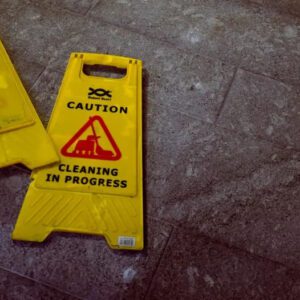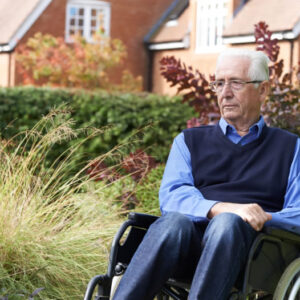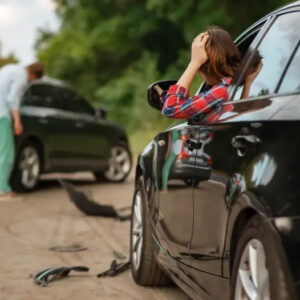Car accidents can be traumatic or even life-changing events that happen in the blink of an eye. They can mark the “before” and “after” in the trajectory of your life. It may take a long time to get over the emotional effects of a car accident which is why reaching a settlement is so important. It allows everyone involved in the accident to turn the page.
Unfortunately, car accident settlements happen on their timeline, and their timeline can be unpredictable. How long do car accident settlements take? The answer depends on a variety of factors.
How Car Accident Settlements Work
Car accident settlements are the legal agreements both parties (or multiple parties) reach after a car accident. It should take into account all damages, pain and suffering, loss of work, and other activities. A settlement is an alternative to going to court—a different way to assess damages and achieve compensation for the pain and suffering caused by the incident. A settlement removes the necessity of a judge and jury. In Illinois, either party can request a settlement conference, or the judge can order one at any time. These are informal meetings between the parties to try to come to an agreement. If no agreement is made at the informal meeting, both parties are able to continue talking to try to reach a settlement, or they may go to court.
Factors That Slow Down Car Accident Settlements
While settlements can be very straightforward, they may be surprisingly slow to sort out. You may wait longer than you like for a settlement after a car accident. Many factors are at play:
- Filing the Claim. Jumping through the hoops of the paperwork can be daunting. You may be required to provide medical records that take time and effort to procure. If you are dealing with the other party’s insurance company, they may not work promptly or be as responsive as your own insurance company.
- Getting a Medical Assessment. Understanding what you are owed may be a challenge depending on the medical problems you confront after an accident. For example, medical problems involving the back or neck, such as whiplash, may appear in the days or weeks following a collision. But other medical side effects such as headaches, neck and shoulder pain, numbness, and even emotional trauma may not show up for months, and getting a thorough medical assessment may tack time onto the timeline for a complete understanding of the damage done.
- Collecting Documentation. Medical records aren’t the only documents you may need to have your car accident settlement finalized. You will need all the bills associated with damages, including car repair receipts and receipts for rental cars or taxi or ride-share services. You may need photographs of the damage to your car as well as photos of the location of the accident. You may need police reports if any were filed. And depending on the case, you may need documentation such as witness testimony.
- Assessing Future Loss. In the most serious cases, a car accident may impact your future. You may not be able to keep the career you’ve built. You may have to ask for accommodations at work, or you may need to go on disability. Examining and assessing the lost “opportunity cost” will involve considering your lost wages and working with a professional to assess what you should be entitled to.
The detailed paperwork and complex information tracking that begins as soon as the accident happens and ends when you finally see your settlement can be long and arduous. It is understandably daunting. It’s essential to have a team of experienced professionals to help you.
How Cullotta Bravo Law Group Can Help
The Cullotta Bravo Law Group has experience getting those involved in car accidents the settlements they deserve in a timely manner. And in the fog of a car accident, it’s important to have a team you can trust who will get you a fair—and timely—settlement for your car accident. The attorneys at Cullotta Bravo Law Firm can help you get that. The team can help you file insurance claims, examine the evidence, and more. Call us at 630-898-7800, or contact us online.
Unlike traditional car accidents, rideshare crashes involve multiple parties, overlapping insurance policies, and evolving laws—especially in a state like Illinois. If you’ve been hurt in a rideshare accident, it’s critical to understand your legal rights. An experienced rideshare accident lawyer can help you make sense of the chaos and pursue the compensation you deserve.
Understanding Rideshare Services in Illinois
Uber and Lyft operate as transportation network companies (TNCs), connecting passengers with drivers via mobile apps. Unlike traditional taxi services, these drivers are considered independent contractors—not employees—which adds complexity to accident liability cases.
In Illinois, the legal landscape for TNCs is governed by a combination of state laws and company-specific policies. The most important factor in determining liability and insurance coverage is the driver’s status at the time of the crash. Whether the driver is actively transporting a passenger, on their way to pick someone up, or just logged into the app waiting for a fare, that status determines which insurance policies apply—and to what extent.
Common Causes of Rideshare Accidents
Rideshare drivers face unique challenges that make accidents more likely. Some of the most common causes include:
- Distracted Driving: Navigating unfamiliar routes, watching for new ride requests, or communicating through the app can divert a driver’s attention from the road.
- Driver Fatigue: Many rideshare drivers work long hours—often late at night or after a full day at another job. Fatigue impairs reaction time and judgment.
- Time Pressure: To maximize earnings, drivers may rush through routes or speed between pickups, increasing the risk of collisions.
- Other Drivers’ Negligence: Sometimes, it’s not the rideshare driver at fault. Other motorists may behave recklessly, causing a crash that injures rideshare passengers.
Understanding the root cause of the accident is the first step in determining who may be held legally and financially responsible.
The Three Phases of Rideshare Driver Activity
Insurance coverage in rideshare accidents is heavily influenced by which of the three rideshare phases the driver was in at the time of the crash:
Phase 1: Driver Logged Off the App
If the driver isn’t logged into the Uber or Lyft app, they’re considered a private citizen. In this case, only the driver’s personal auto insurance applies. Uber and Lyft provide no coverage during this phase.
Phase 2: Driver Logged In, Waiting for a Ride Request
Once a driver logs into the app and is waiting for a ride request, both Uber and Lyft offer limited liability coverage, which generally includes: $50,000 per person for bodily injury, $100,000 per accident for bodily injury, $25,000 for property damage. However, this coverage only kicks in if the driver’s personal policy doesn’t apply or denies the claim.
Phase 3: Ride Accepted or Passenger in Vehicle
From the moment a driver accepts a ride request to the moment the passenger exits the vehicle, the rideshare company provides $1 million in liability coverage, along with uninsured/underinsured motorist coverage. This is the most robust protection available—but securing compensation still isn’t always simple. Insurance companies may dispute facts or attempt to shift blame. A rideshare accident lawyer can help hold the correct parties accountable.
Who Can Be Held Liable in a Rideshare Accident?
Liability in a rideshare crash often involves more than just the person behind the wheel. Depending on the circumstances, several parties may share legal responsibility:
The Rideshare Driver
If the rideshare driver was speeding, distracted by the app, under the influence, or otherwise driving negligently, they may be held personally liable for the accident. Illinois law requires all drivers to operate their vehicles with reasonable care, and rideshare drivers are no exception.
However, liability also depends on what phase of the ride they were in at the time. If the driver was logged off the app, their personal insurance applies. If they were active on the app or transporting a passenger, Uber or Lyft’s commercial policy may provide coverage. But keep in mind: Insurance companies often dispute liability, especially when there’s ambiguity about the driver’s app status.
An experienced attorney can subpoena digital evidence—such as app logs, GPS data, and trip histories—to confirm the driver’s activity at the time of the crash and secure the appropriate coverage.
Another Driver
If a third-party driver caused the collision—by running a red light, rear-ending the rideshare vehicle, or making an illegal turn—they are typically considered the at-fault party. In such cases, the injured rideshare passenger or driver would file a claim against the third-party driver’s liability insurance.
Unfortunately, some Illinois drivers are underinsured or have no insurance at all. That’s where Uber and Lyft’s uninsured/underinsured motorist coverage may come into play. This coverage can help fill the gap between the damages sustained and what the at-fault driver’s insurance can pay. However, navigating these overlapping policies can be challenging without legal support.
Uber or Lyft
Rideshare companies work hard to avoid direct liability by classifying drivers as independent contractors. However, Illinois courts may allow direct claims against Uber or Lyft if there’s evidence of negligent hiring, supervision, or policy enforcement.
For example, if the company failed to disqualify a driver with a history of reckless driving or ignored prior safety complaints, they could potentially be held liable for failing to protect passengers or the public. These are difficult cases to win—but not impossible, particularly when supported by strong documentation and a compelling legal argument.
Other Potential Parties
Additional third parties may bear responsibility in certain rideshare accident scenarios:
- Automakers: If a defective brake, tire, or steering system caused the crash, the manufacturer may be liable under Illinois product liability laws.
- Local governments: If poor road conditions, missing signage, or malfunctioning traffic signals contributed to the accident, municipalities may face liability.
- Vehicle maintenance providers: If a rideshare driver leased their vehicle or relied on a third-party service for upkeep, that company could be accountable for negligent maintenance.
Determining liability requires a detailed investigation and knowledge of how Illinois law applies to each scenario. The sooner you begin that process, the better your chances of recovering full compensation.
Understanding Rideshare Arbitration Agreements
Most Uber and Lyft users don’t think twice about tapping “I agree” when they install the app or update their profile. But hidden within those digital checkboxes are powerful legal clauses—namely, arbitration agreements—that can significantly affect your right to sue after an accident.
What is an Arbitration Agreement?
An arbitration agreement is a clause in a contract that requires disputes to be resolved through private arbitration rather than in court. Arbitration is typically conducted outside the traditional legal system, with limited discovery, no jury, and binding outcomes. While this process can be faster, it also tends to favor corporations and restrict consumer rights. In the context of rideshare apps, both Uber and Lyft include arbitration clauses in their Terms of Service. These clauses often apply broadly, covering everything from billing disputes to serious injury or wrongful death claims.
How Arbitration Complicates Lawsuits
When a rideshare accident occurs, passengers or injured third parties may try to bring a personal injury lawsuit against the company. But rideshare companies frequently cite their arbitration agreements to block those lawsuits before they begin. In many cases, courts have upheld these clauses—even when the injured party didn’t personally accept the terms, but rode under someone else’s account (such as a spouse or child). That means your ability to take legal action could hinge on the fine print of an agreement you never saw.
What Can You Do?
While arbitration clauses are enforceable in many jurisdictions, there are exceptions. Courts may reject them if they’re found to be unconscionable, misleading, or improperly applied to someone who isn’t bound by the terms. An experienced rideshare accident lawyer can help determine whether arbitration applies in your case—and if it can be challenged. Don’t assume you’ve waived your rights until a qualified attorney reviews your options.
What Should You Do After a Rideshare Accident in Illinois?
If you’ve been involved in a rideshare crash—whether as a passenger, another driver, or a pedestrian—your actions in the moments and days that follow are crucial for protecting your health and your legal rights.
1. Get Medical Attention Immediately
Your health comes first. Even if you feel fine, some injuries (like whiplash or internal bleeding) may not show symptoms right away. Medical records also create critical documentation for any future claim.
2. Report the Crash
Illinois law requires accidents involving injury or property damage over $1,500 to be reported to police. Additionally, you should report the crash through the Uber or Lyft app if applicable—but don’t rely solely on the app report. Rideshare companies often treat internal incident reports as private matters, which may not help your claim.
3. Collect Evidence
If it’s safe to do so, gather evidence that will help support your case. Get contact and insurance information from all drivers involved, as well as the names and numbers of any witnesses. Take photos of the accident scene, vehicle damage, and visible injuries. You can also grab screenshots from your rideshare trip—including timestamps and driver info—to help support your claims.
4. Contact a Rideshare Accident Lawyer
An experienced Illinois rideshare accident lawyer can help you navigate the complex claims process, deal with multiple insurers, and protect your rights from the start. At Cullotta Bravo Law Group, our attorneys bring more than 30 years of personal injury experience to every case. We understand the nuances of Illinois liability laws and know how to go toe-to-toe with insurance companies that try to deny or minimize your claim.
Navigating Insurance After a Rideshare Crash
Filing an insurance claim after a rideshare accident often involves more than one policy—and more than one headache. Victims are frequently caught in a maze of overlapping coverage, disputed responsibility, and complex fine print:
Overlapping Policies
Depending on the driver’s status and who caused the accident, multiple insurance policies may be triggered:
- The rideshare driver’s personal auto insurance
- Uber or Lyft’s contingent or commercial liability policies
- The at-fault driver’s liability insurance (if it wasn’t the rideshare driver)
Each policy has its own limits, exclusions, and eligibility criteria. For example, the rideshare company’s coverage only applies when the driver is logged into the app. If the app was closed—or if there’s a dispute about when the ride began—coverage may be denied outright.
Disputed Liability
One of the most common obstacles victims face is insurance companies shifting blame. For example, Uber may claim the driver wasn’t logged into the app. Meanwhile, the driver’s insurer may claim the vehicle was being used commercially. A third-party insurer may argue shared fault.
Illinois follows a modified comparative negligence rule, which means your compensation can be reduced—or even eliminated—if you’re found more than 50% at fault. This gives insurers a strong incentive to argue that the victim contributed to the accident, especially in complex multi-vehicle crashes.
Delays and Denials
Insurers often use delay tactics to wear down claimants or pressure them into accepting lowball settlements. Victims may face repeated requests for redundant documentation, confusing or contradictory statements from adjusters, or radio silence once a claim is submitted. These tactics aren’t just frustrating—they can be financially devastating, especially when medical bills are piling up. This is where skilled legal advocacy can make a major difference.
Why Legal Help Matters
The legal and insurance systems surrounding rideshare accidents are built for complexity—and for protecting corporate interests. As a victim, trying to navigate them alone can be overwhelming and disheartening. Hiring an experienced rideshare accident lawyer isn’t just helpful—it can be the difference between receiving fair compensation or being left with the bill.
Remember: You’re not just up against a negligent driver—you’re going up against billion-dollar corporations and insurance companies with armies of lawyers. Having your own legal team levels the playing field. A skilled rideshare accident lawyer can:
- Investigate the crash: This may include obtaining ride data from Uber/Lyft, securing dashcam footage, reviewing cell phone use, and hiring accident reconstruction experts.
- Determine liability: Your attorney will identify every responsible party, from the driver to third-party drivers to rideshare companies themselves.
- Negotiate or litigate: Most personal injury claims settle out of court, but your lawyer will be prepared to take your case to trial if insurers refuse to offer a fair amount.
- Pursue full compensation: Damages may include medical bills, lost wages, pain and suffering, and in some cases, punitive damages.
Don’t Let a Rideshare Wreck Derail Your Recovery
Rideshare accidents are rarely straightforward. Between multiple parties, overlapping insurance policies, and unclear liability, navigating the aftermath of an Uber or Lyft crash in Illinois requires legal guidance and a firm understanding of your rights. Whether you were injured as a passenger, another driver, or even a pedestrian, working with an experienced rideshare accident lawyer can make all the difference.
At Cullotta Bravo Law Group, we’ve spent decades fighting for Illinois injury victims—and we’re ready to fight for you. Contact us today for a free consultation and let’s talk about how we can help you get the compensation you deserve.
Filed Under: Car accident

